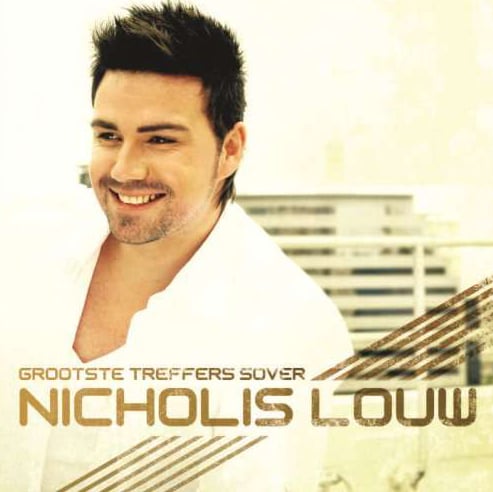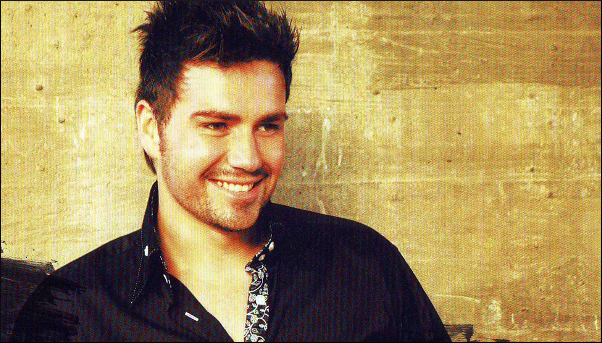
- Abra Kadabra
- Released in: 2012
“Abra Kadabra” is an upbeat, high-tempo song, gracing countless South African drum-majorette competitions, dance clubs, households, and especially “braais” (barbeques or campfires).

“Abra Kadabra” is an upbeat, high-tempo song, gracing countless South African drum-majorette competitions, dance clubs, households, and especially “braais” (barbeques or campfires).

“Abra Kadabra,” from the double album Grootste treffers so ver (Biggest Hits So Far), released in 2010, is one of Nicholis Louw's great songs. He has successfully covered a wide spread of musical genres (including country, gospel, Latin American, and opera), earning him dozens of South African music awards. “Abra Kadabra” is an upbeat, high-tempo song, gracing countless South African drum-majorette competitions, dance clubs, households, and especially “braais” (barbeques or campfires).
Louw sings of being in a thunderstorm at midnight. The first stanza begins, “Ek gaan jou soek, Ek gaan you kry.” Through repetition, he adds extra emphasis on the word “gaan,” which means “will.” The term is stronger than “can do it” or “want to do it.” Thus, he emphasizes his “will” to “soek en kry.” “Soek” translates into “seek” and “kry” means “to receive,” and all together, the artist says he is adamant to seek and receive an unnamed “you,” even though he is in dark circumstances.
Later, he says, “Kan my nie keer, kan maar probeer, maar ek sal altyd by bly,” here adding emphasis on the word “kan” instead of “gaan.” This signifies possibility, if not necessarily probability, and translates into “can.” Here, Louw underlines that his “will” may possibly be impeded, but his insistence to be with “you” will allow him to persevere. The following “keer” serves as a homonym. It can mean “time,” as in “time-after-time,” which would be “keer-op-keer,” or it can mean what it does in this verse, “to prevent, avert, or stop.” Additionally, the homonym “by bly,” meaning “to keep up, remain abreast, or maintain,” can also signify “to keep in one’s memory, to remember.” No matter what, he will remain aloof and remember who “you” is.

Tienie Brits, a South African magician affectionately remembered posthumously as Martino, used the catchphrase, “Kul jou hier, kul jou daar, en siedaar!,” from which the next stanza, “Jy kul my hier, jy kul my daar,” originates. “Kul” translates as “con, cheat, or fool,” and “siedaar” is similar to “ta-daa.” So, the catchphrase would mean something like, “Fool you here, fool you there, and ta-daa!” Martino, with this magic phrase, enchanted viewers on national TV, and his words still linger and are frequently uttered, capturing the minds of Afrikaners today.
The next verse begins with the song’s title, “Abra Kadabra,” which is said to have originated from Hebrew. “A’bra” means “I create,” “ca” means “what,” and “dab’ra” means “I speak,” hence, “I create what I speak.” Louw then states, “There you disappear again,” and then offers a series of questions, like “Where are you?,” before resigning himself to try again. The second stanza repeats this pattern, but offers the answers to the previous questions, “There you are!”

One could say the song serves as a double entendre. In one aspect, it’ is a love story, in which the artist is adamant about finding the perfect woman amidst a storm. When “Abra Kadabra” is blaring inside nightclubs, it’s interpreted as so. However, remembering the artist is a gospel singer, it would be safe to suggest that the “you” in fact recalls the lines “Seek and you shall find,” in Luke 11:9, and “For a mere moment I have forsaken you, but with great mercies, I will gather you,” in Isaiah 54:7. By writing this song in such an ambiguous fashion, Louw manages to spread the word of God to the most unlikely places, more so than most other gospel hits would be capable of doing. Which is rather magical, or “Abra Kadabra!”